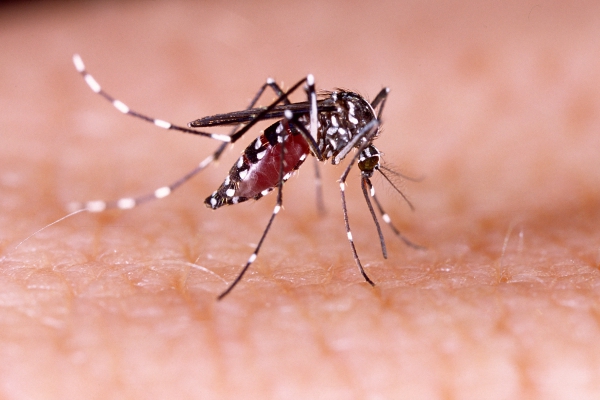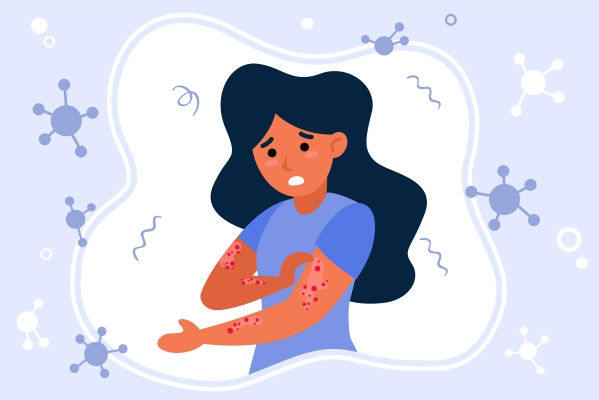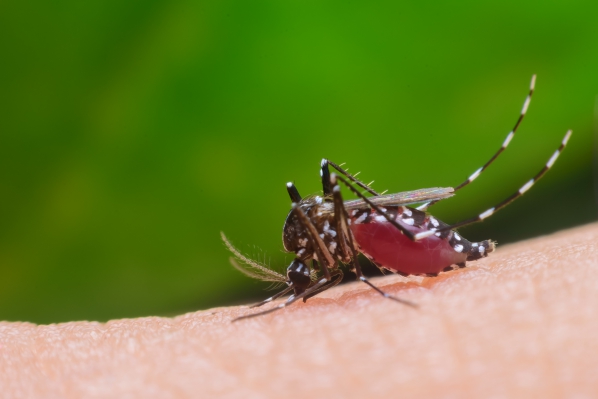What is Zika virus disease?
Zika virus disease is a viral infection caused by the Zika virus which belongs to the family of Flavivirus. Zika virus causes a mild and self-limited illness in most cases. In many cases, the infection may even go unnoticed due to its mild nature. The virus is transmitted through mosquito bites and is mainly present in tropical and subtropical countries. In rare cases, the infection can lead to brain or nervous system complications. It is also associated with an increased risk of miscarriage in pregnant women.
It is difficult to know the exact prevalence of the disease around the world as many people do not have any symptoms despite having the infection. Furthermore, the symptoms caused by Zika virus often look like those present in Dengue and Chikungunya. The first outbreak in the Americas was reported in Brazil in May 2015. The infection has then rapidly spread to many other countries leading to a pandemic.
What causes Zika Virus disease?
Zika virus disease is caused by the Zika virus which is primarily transmitted by the Aedes mosquito which lives mostly in tropical regions. The cycle begins when a mosquito bites an infected individual. This mosquito becomes infected and can further transmit to other people during feeding. The virus then enters the bloodstream of the person where it causes infection.
Other modes of transmission include:

- Transmission from mother to baby during pregnancy
- Sexual contact including vaginal, anal and oral sex
- Blood transfusions
- Organ transplant
- Exposure to the virus in laboratories
What are the risk factors of Zika virus disease?
You are at greater risk of having the disease if you are travelling to a country where the disease is present. These include the Pacific Islands, several countries in South and North America and islands near West Africa. You are also more prone is you have unprotected sex as the virus can be transmitted through sexual contact. If your sexual partner or yourself have recently travelled or live in a country where outbreaks are present, you are advised to use a condom during sexual intercourse. If you are pregnant, abstinence is recommended to avoid complications in the baby.
What are the signs and symptoms for Zika Virus disease?
Symptoms usually appear 2 to 14 days after the infected mosquito bite. This is known as the incubation period. The symptoms are usually mild and the symptoms tend to resolve within 2 to 7 days. If symptoms do occur they include:
- Low grade fever
- Skin rash associated with itchiness
- Pain in the joints
- Conjunctivitis or pink eye which is an inflammation of the eye
- Muscular pain
- Headache
- Lethargy
- Abdominal pain
- Nausea
- Diarrhoea
- Facial puffiness

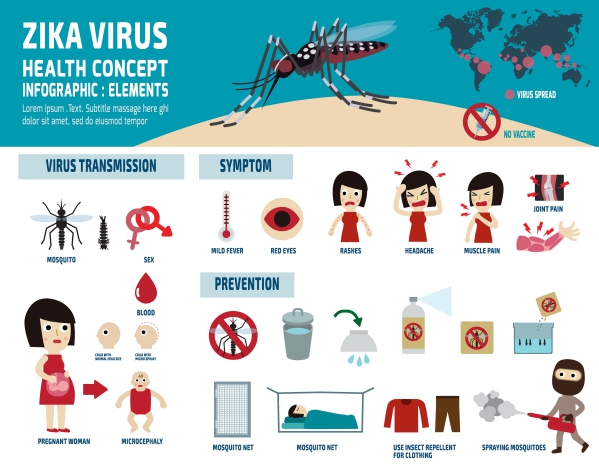
How is the diagnosis of Zika Virus disease made?
To make the diagnosis of Zika, your doctor will first take a detailed history from you to know more about your symptoms, focusing on a possible exposure to mosquito bites or close contact with an infected individual. Questions about recent travels to high risk countries will also be asked. He/she will then proceed with a physical examination to look for signs of Zika virus disease.
Blood tests may be done to look for and isolate the virus in the blood. Antibodies against the virus may also be looked for using special tests. Laboratory tests can be done with urine samples to confirm the diagnosis of Zika Virus disease.
All pregnant women who have travelled to a country where the disease is present should undergo an imaging tests known as fetal ultrasonography to evaluate for any abnormalities in the brain and head of the foetus.
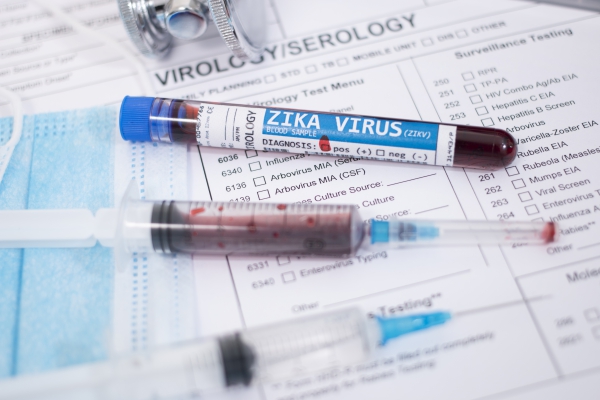
How is Zika virus infection treated?
There is no specific antiviral treatment for the management of Zika virus infection. Treatment is mostly supportive to alleviate symptoms until complete resolution. The management consists of bed rest and proper intake of fluids to prevent dehydration. Acetaminophen may also be administered to decrease the fever and pain associated with the disease.

It is not recommended to take aspirin or other nonsteroidal anti-inflammatory medications until the diagnosis of dengue has been ruled out as both conditions may present in the same way. Aspirin should also never be given to children younger than 18 years as there is a risk of having a serious complication known as Reye syndrome.
How can Zika virus disease be prevented?
Zika virus disease may be prevented if necessary measure are taken to avoid mosquito bites. You are advised to wear long sleeves and long pants as well as using mosquito repellents to minimize the risk of having mosquito bites. Stay indoors as much as possible if you are in a country where the disease is prevalent. Use mosquito nets to keep mosquitoes away. If you are already infected, you should still avoid mosquito bites in order to prevent further transmission to other individuals.
Elimination of potential breeding sites for mosquitoes is also an important measure. Remove all potential sites of accumulation of stagnant water such as planting containers, bottles, jars, and tyres. Cover your water tanks to prevent breeding of mosquitoes. If you live in a country where the disease is present, you are advised to take precautions during sexual intercourse such as wearing condoms or abstinence, especially during pregnancy.
There is no vaccine available yet. However, it is under development.
What are the complications of Zika Virus disease?

In some cases, complications have occurred including pregnancy losses and babies born with microcephaly (a condition in which a baby’s head and brain is smaller than normal). In some studies, Zika virus disease has been found to be associated with Guillain-Barré Syndrome. In this syndrome, the body’s immune system attack one’s own nerves. This results in weakness and tingling sensation in the extremities, quickly spreading and eventually leading to the paralysis of the whole body.
Prognosis
The majority of cases of Zika disease are mild and resolve on their own. Around 80% of cases go unnoticed as the people do not have any symptoms. In rare cases, serious complications have been reported.
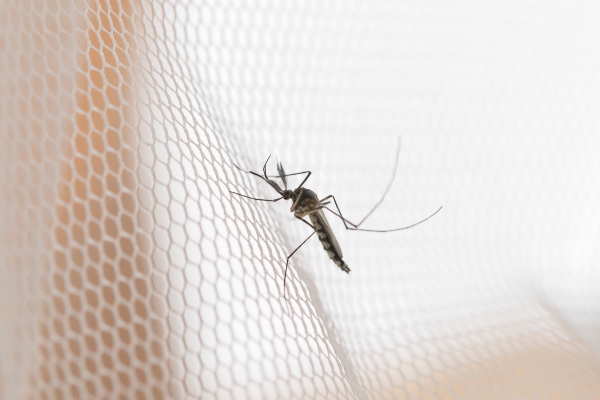
Source:
LaBeaud, A., 2020. Zika virus infection: An overview
Navalkele, B., 2018. Zika Virus
Bennett JE, Dolin R, Blaser MJ. Mandell, Douglas, and Bennett's Principles and Practice of Infectious Diseases. 8th ed. Philadelphia, PA: Elsevier/Saunders; 2015. Vol 2
Mlakar J, Korva M, Tul N, Popović M, Poljšak-Prijatelj M, Mraz J, et al. Zika Virus Associated with Microcephaly. N Engl J Med. 2016 Feb 10.
Centers for Disease Control and Prevention. Zika virus disease in the United States, 2015–2016. Centers for Disease Control and Prevention.
